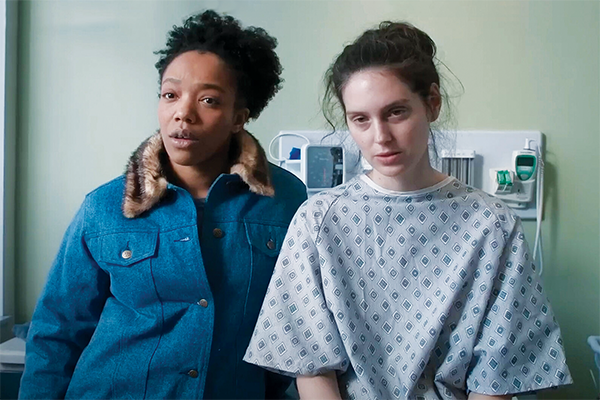IN A PERENNIALLY timely 2014 article about the lessons she learned from her experience with trauma, Catherine Woodiwiss wrote, “Trauma is a disfiguring, lonely time even when surrounded in love; to suffer through trauma alone is unbearable.” We need people around us when we’re suffering, if only to know that they’re there to call on when we need something.
When my trauma and anxiety journey started in 2016, I quickly learned that putting up a front of “Everything’s fine!” only made things worse. It was humbling to admit I needed support. It was empowering to realize people wanted to help. I knew that someday, when I felt better (and I would feel better), I would return the favor.
The film Sorry, Baby, from writer-director Eva Victor, is the most accurate depiction I’ve seen of how trauma stays in your mind and body and what it takes to reach a place of stability. After Victor’s character, Agnes, experiences sexual assault, she relies on the help of close friends and a neighbor, and a stranger’s kindness, to help her through the three-year period that follows.
Read the Full Article

